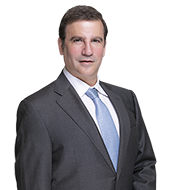COVID-19: Reimbursement Corner: Graduate Medical Education Gets Major Boost from Congressional Appropriations Bill
Shortly before midnight on 21 December 2020, Congress passed with broad bipartisan support the Consolidated Appropriations Act, 2021, which contains $2.3 trillion in spending aimed at stimulating the economy and providing relief from COVID-19. The 5,593-page bill, which is believed to be by far the longest bill ever to be passed by Congress, contains $900 billion in COVID-19 relief, along with $1.4 trillion in catchall spending. Provided the president signs the bill, some of the bill’s provisions will go into effect as soon as next week.
Buried among the thousands of pages is a series of significant changes to federal funding of graduate medical education (GME) that will have substantial impacts on hospitals and future physicians. Recent reports have indicated that the United States faces a projected physician shortage of approximately 139,000 physicians within the next 10–15 years. Perhaps in recognition of that anticipated scarcity, Congress has significantly expanded the number of federally funded physician residency positions. Specifically, the legislation contains the following GME provisions:
- Additional Federal Support for Residency Training – the bill ends a nearly 25-year freeze on Medicare funding for GME.
- Additional GME Positions – the bill adds 200 new Medicare-funded GME positions per year over five years at both rural and urban teaching hospitals. At least 10 percent of such positions must be assigned to rural hospitals, teaching hospitals, hospitals that serve areas designated as health professional shortage areas (HPSAs), and hospitals in states with new medical schools. Any hospital assigned additional residency positions may receive up to a maximum of 25 additional full-time positions. Such slots, however, must be accompanied by an agreement to provide a commensurate amount of new training.
- Additional Flexibilities for Rural Training Programs – the bill removes the separate accreditation requirement, which previously was required for hospitals providing rural training programs to receive federal funding. Under the bill’s provisions, rural and urban hospitals that do not meet the separate accreditation requirement may work together to offer training programs aimed at increasing the number of physicians in rural areas.
- Opportunity to Re-Establish GME Caps and Per-Resident Amounts – the bill offers opportunities for certain hospitals with low GME caps to establish new caps in order to receive Medicare funding for GME programs they seek to grow and enhance. Likewise, the bill permits certain hospitals with low per-resident amounts (PRAs) to establish a new PRA under existing methodologies applicable to new teaching hospitals. The bill also offers a reprieve on the establishment of new GME caps and PRAs for any hospital until the hospital trained more than 1.0 full-time equivalent (FTE) resident in a year.
We will continue to monitor these important developments and will provide updates on associated regulatory matters, including any announcements regarding slot applications.
K&L Gates’ health care practice and public policy and law practice routinely assist stakeholders with legal advice on issues facing teaching hospitals, including with the submission of public comments. We can advise and engage with Congress and the administration on these matters. Contact the authors of this article or your K&L Gates lawyer for assistance or questions regarding this or other issues involving graduate medical education.
This publication/newsletter is for informational purposes and does not contain or convey legal advice. The information herein should not be used or relied upon in regard to any particular facts or circumstances without first consulting a lawyer. Any views expressed herein are those of the author(s) and not necessarily those of the law firm's clients.






